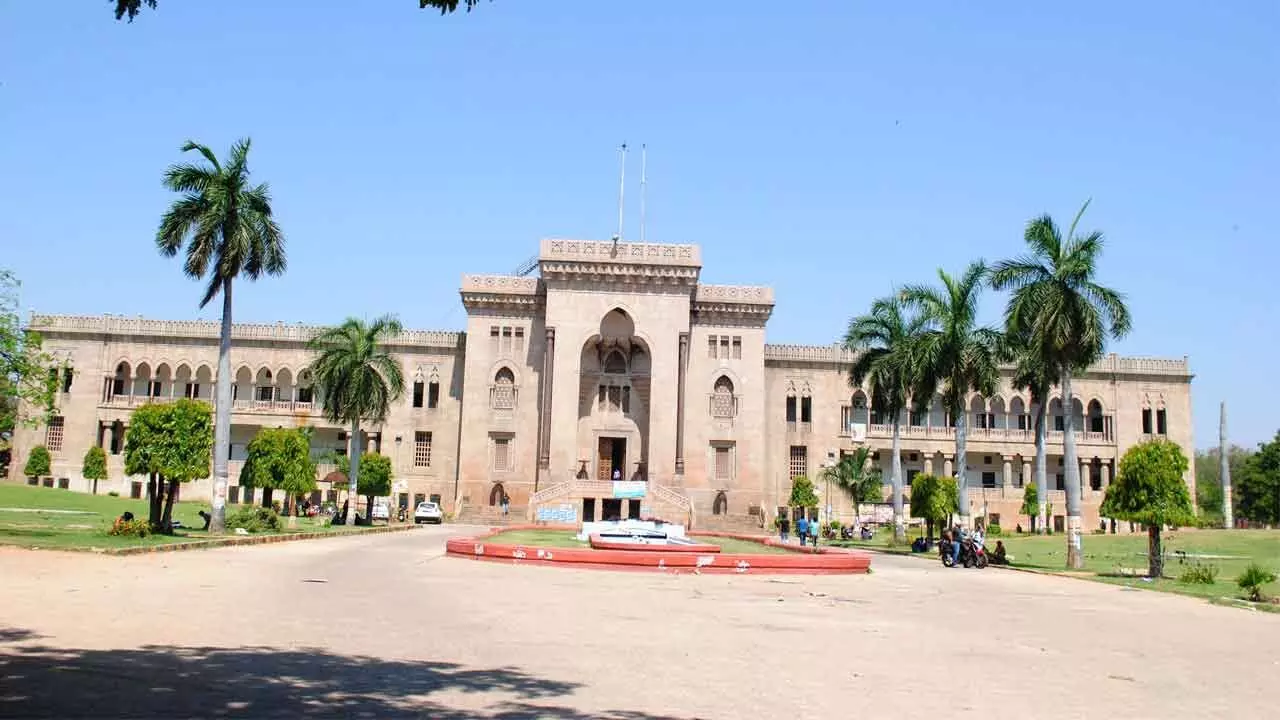Live
- Pawan Kalyan to Campaign for NDA Alliance in Maharashtra
- Eight killed, five injured in Nepal's traffic accident
- Technical snag grounds PM Modi's aircraft in Jharkhand
- Divya Pillai FL from ‘Bhairavam’ unveiled
- Tension in Lagcherla as BRS Leaders Allegedly Incite Landless Poor
- India vs South Africa 4th T20I Today: Know About Venue, Squad, Start Time, and Live Streaming Details.
- Abhishek says ‘sounds cool’ to be making a film about ‘someone who has 100 days to live’
- Samsung to buy back stock worth $7.16 billion to boost shareholder value
- ICC Champions Trophy 2025: Trophy tour to start from Islamabad on November 16; to travel to Karachi, Lahore and Rawalpindi
- Nazara Technologies sees Q2 profit decline 33 pc to Rs 16 crore
Just In
Higher Education Saga-V: Should Telangana need a brand new education policy?


Hyderabad: Should Telangana need an all-brand new education policy? Or, should it evaluate and figure out the existing course curriculum and improvise...
Hyderabad: Should Telangana need an all-brand new education policy? Or, should it evaluate and figure out the existing course curriculum and improvise to align to centre-disciplinary and multi-disciplinary pathways? The first is an expensive exercise needing budgetary allocations with the paraphernalia of running a new department like the Telangana Education Commission (TGEC). The second comes as an economical but still viable option.
According to sources, Osmania University has taken the initiative to give students the freedom to pursue the courses of their choice.
Speaking to The Hans India, a senior faculty member from social sciences of Osmania University, said, "It is an ambitious initiative. It allows a science student to study commerce and a social science student to study science subjects." In turn, students could explore the interdisciplinary areas of their interest.
However, the stumbling block that comes its way is to map different courses from the undergraduate level of the degree colleges. There is no clarity on designing, developing and planning courses that allow students to proceed on career paths or opt for higher education based on the subject areas they study.
For example, the reason best known to the Department of Higher Education is that 'psychology' has been introduced in more than 100 degree colleges, across the State. One of the combinations at the undergraduate level is Psychology, Journalism and English Literature. Each subject area has a pre-determined career path. How does a combination of any one or more of the three subject areas allow students studying social sciences to explore new and emerging areas?
The National Education Policy (NEP) 2020's four-year undergraduate programme includes an honours degree option. It comes with a blend of research and community engagement. Besides, students can opt for single majors, double majors, minors, multidisciplinary courses, and skill enhancement courses.
For example, Psychology with a specialisation in Cognitive Psychology with a combination of Linguistics specialisation in Literature course creates a path into the Artificial intelligence area, leading to a full-fledged honours and postgraduate course in MSc or MA Congnative Studies or Congnative Sciences. This functions as the basis for AI language technologies. It is considered a huge asset with the potential that comes with the linguistic diversity of India.
Private universities like Amurtha University offer courses like MSc Cognitive Science. On the practical side of it, the premier Institue of Excellence like the Bengaluru-based Indian Institute of Science (IISc) and AI and Robotics Technology Park (ARTPARK), capture the linguistic diversity of the country's spoken languages to give the much-needed Filip to the language AI technologies and content for including Digital India.
Similarly, a specialisation in Criminal Psychology creates a pathway into associated areas of police administration.
However, creating bridges between different subject areas requires designing bridge courses for students to move and branch out from one to multiple subject areas, to qualify as potential candidates for multiple-career profiles. Besides, investments in such exercises help create a new generation of qualified teachers for degree colleges and State universities.

© 2024 Hyderabad Media House Limited/The Hans India. All rights reserved. Powered by hocalwire.com






